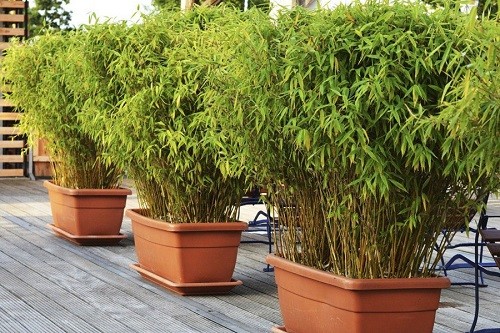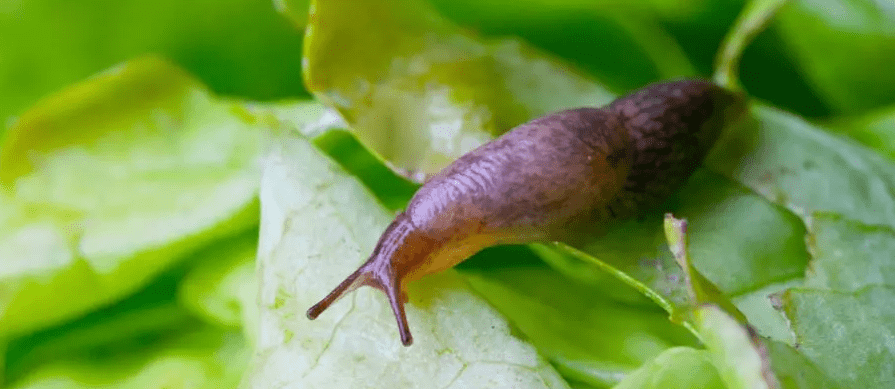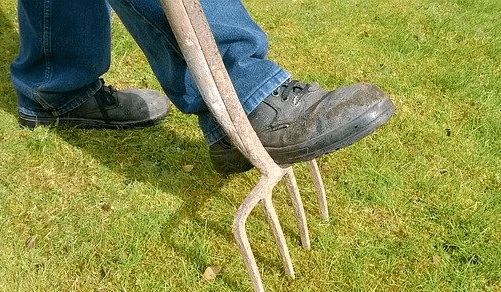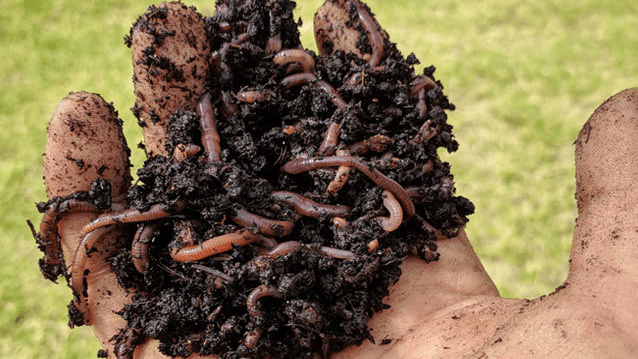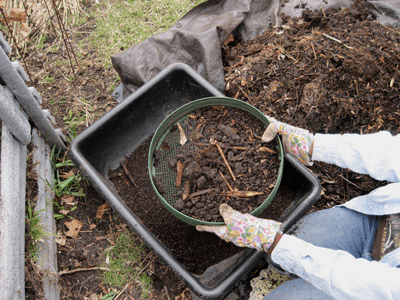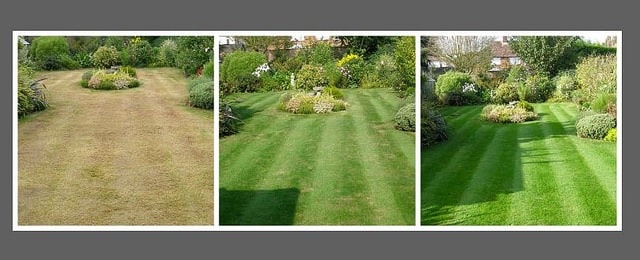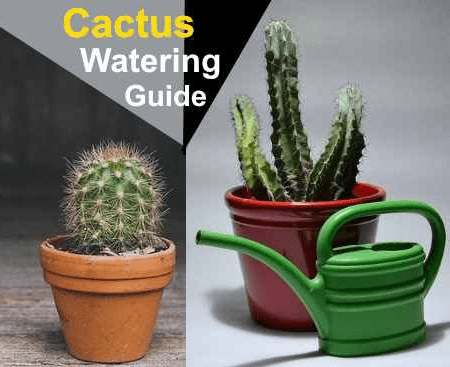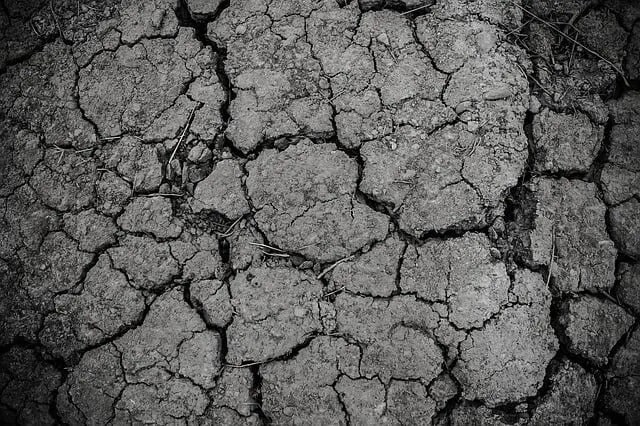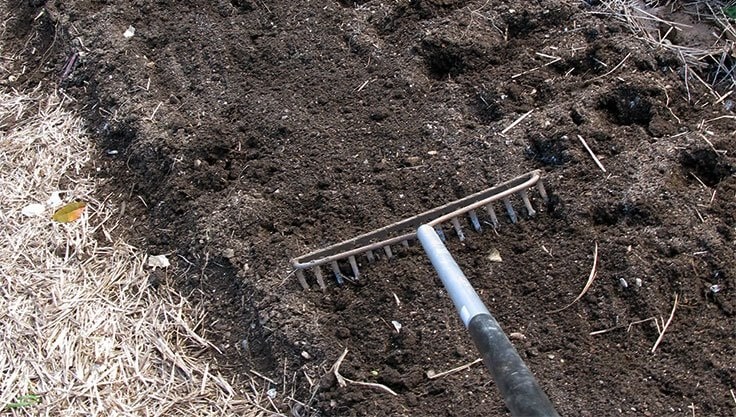Bamboo plants are very suitable for container culture and can thus be used as “mobile greenery” on terraces and balconies. In order for bamboo to grow well in a sturdy outdoor planter, you should mix the soil yourself.
Contents
Bamboo soil from the store
Special soil designed specifically for grasses and bamboo is available in stores. This is tailored to the special needs of the Far Eastern sweet grasses and, because it is pre-fertilized, provides all the important nutrients for about two to three months. Bamboo soil usually consists of
- Humus
- Peat
- Clay (e.g. expanded clay)
- Stone meal
- sand
- Lime
- NPK fertilizer
If you decide to use ready-made soil for bamboo in a container, make sure it has a high humus content. In addition, bamboo is a heavy feeder – so it has high nutrient requirements – and therefore needs significantly more nitrogen than phosphorus or potassium. Therefore, the substrate should contain a higher proportion of nitrogen than of the other main nutrients.
Components such as sand, stone dust or expanded clay, on the other hand, are indispensable because they loosen the soil and ensure that watering and rainwater can drain off well. In this way, you effectively prevent waterlogging.
Tip: Also indispensable is good drainage in the pot, so the plant pot needs a drainage hole at the bottom. Over it, first fill a layer of expanded clay about five centimeters thick, and the drainage hole should be covered with a piece of clay or something similar
Mix bamboo soil yourself
Instead of using the expensive soil from the store for the bamboo in the container, you can mix it yourself at a lower cost. For this you need
- humus garden soil
- mature compost
- Sand
- expanded clay or perlite
- Slow-release fertilizer in pellet form (NPK fertilizer)
Mix one part each of garden soil, compost and sand together with (depending on pot size) one to two handfuls of expanded clay. To this, add the pellet fertilizer according to the manufacturer’s instructions. If possible, choose a fertilizer for grasses and bamboo, although conventional lawn fertilizer (without additives such as moss control) or simple NPK fertilizer is also very suitable. With the latter, you should add rock flour for mineral supply.
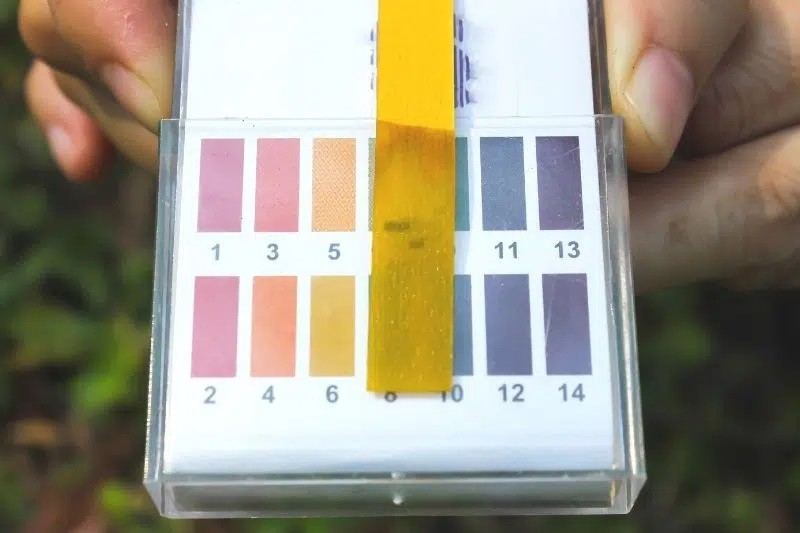
Tip: Finally, use a strip test to check the pH value of the mixture, which should ideally be 7 or slightly less. However, the substrate must not be acidic in any case
Choosing the right garden soil
Now, not all garden soil is the same. For bamboo, you should use a loose soil with a high humus content. You can recognize this by its dark color and fine crumbly structure. Unsuitable, on the other hand, is soil with a high clay or loam content, as this is too heavy and promotes waterlogging. Simply take suitable soil from your garden, whereby you should especially remove freshly thrown up mole heaps – this is often particularly loose and rich in humus.
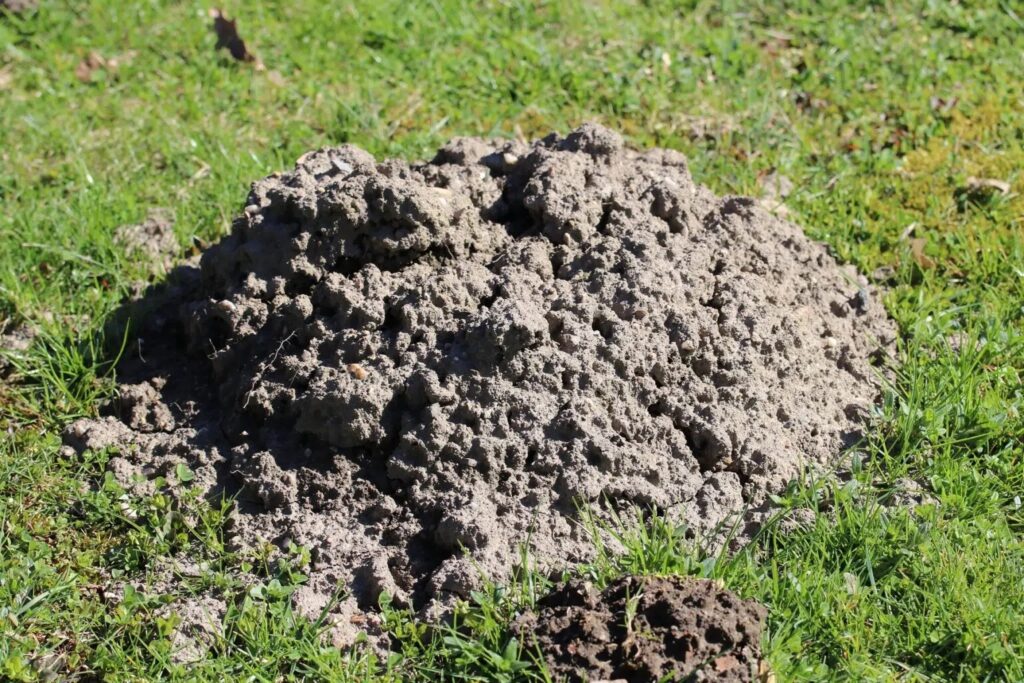
Make sure that you do not mix in any unwanted weeds or stones. Ideally, you should sift the garden soil before use. If you do not have any suitable garden soil at hand, you can also use commercially available potting soil. In this case, you can dispense with the additional addition of fertilizer, as ready-mixed substrate is usually pre-fertilized.
Make sure that you do not mix in any unwanted weeds or stones. Ideally, you should sift the garden soil before use. If you do not have any suitable garden soil at hand, you can also use commercially available potting soil. In this case, you can dispense with the additional addition of fertilizer, as ready-mixed substrate is usually pre-fertilized.
Frequently asked questions
How big should a pot for bamboo plants be?
A suitable pot for bamboo is about three times the size of the root ball. Pots for young plants should hold at least 50 liters, and every two to three years you should put the bamboo in fresh substrate and a larger container. It is better to take a larger plant pot with a capacity of about 90 liters right away – here the roots can develop optimally. In addition, the pots should be made of heavy material such as clay or ceramic.
Which bamboo is particularly suitable for containers?
The smaller Fargesia species are particularly well suited for container cultivation, as they do not form runners. Runner-forming bamboo varieties such as Phyllostachys can be problematic, as they may well burst the planter if they grow vigorously. Fargesia, on the other hand, grow well and densely, remain lower in principle, are pruning tolerant and frost resistant.

